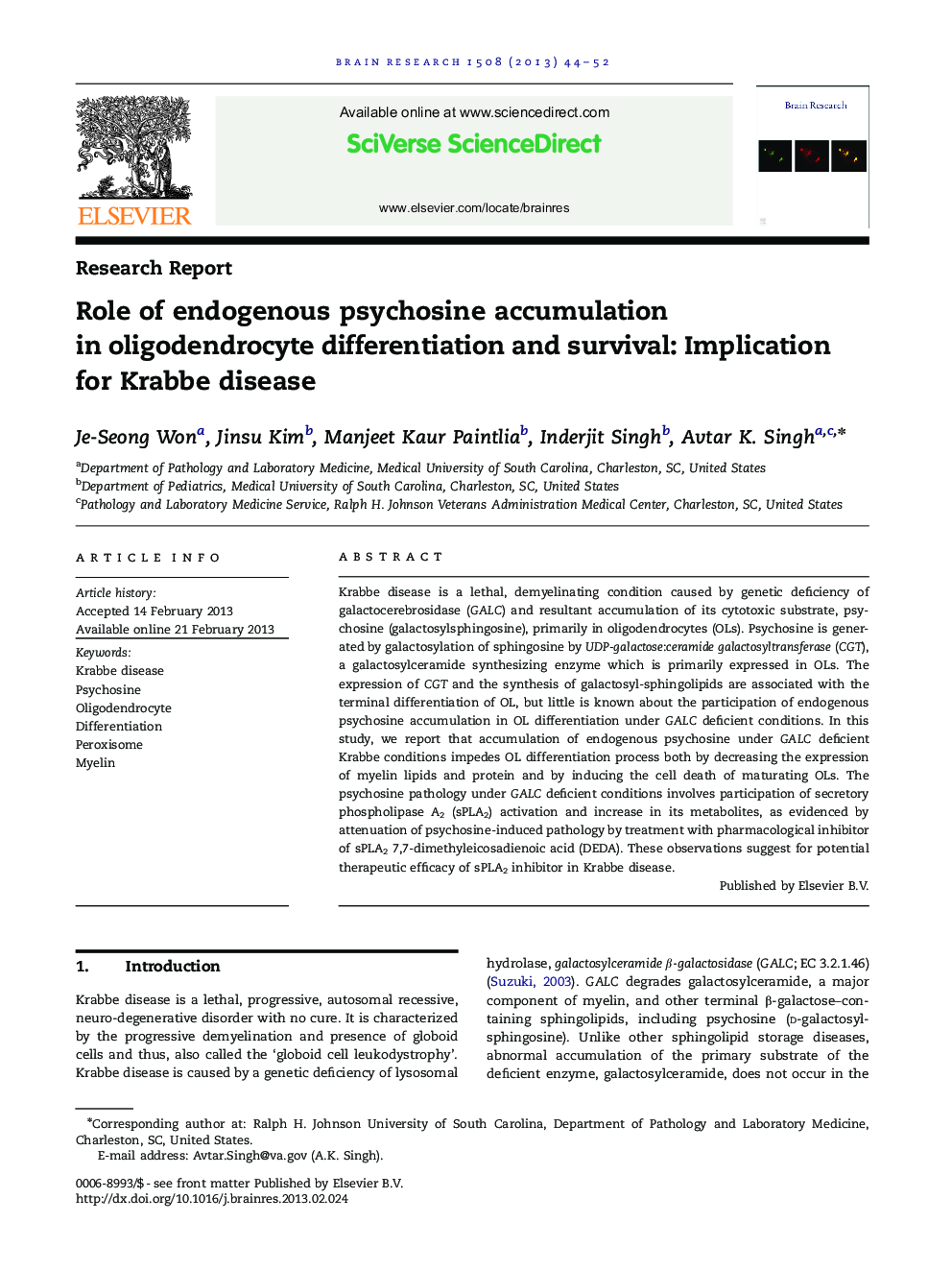| Article ID | Journal | Published Year | Pages | File Type |
|---|---|---|---|---|
| 4324756 | Brain Research | 2013 | 9 Pages |
Krabbe disease is a lethal, demyelinating condition caused by genetic deficiency of galactocerebrosidase (GALC) and resultant accumulation of its cytotoxic substrate, psychosine (galactosylsphingosine), primarily in oligodendrocytes (OLs). Psychosine is generated by galactosylation of sphingosine by UDP-galactose:ceramide galactosyltransferase (CGT), a galactosylceramide synthesizing enzyme which is primarily expressed in OLs. The expression of CGT and the synthesis of galactosyl-sphingolipids are associated with the terminal differentiation of OL, but little is known about the participation of endogenous psychosine accumulation in OL differentiation under GALC deficient conditions. In this study, we report that accumulation of endogenous psychosine under GALC deficient Krabbe conditions impedes OL differentiation process both by decreasing the expression of myelin lipids and protein and by inducing the cell death of maturating OLs. The psychosine pathology under GALC deficient conditions involves participation of secretory phospholipase A2 (sPLA2) activation and increase in its metabolites, as evidenced by attenuation of psychosine-induced pathology by treatment with pharmacological inhibitor of sPLA2 7,7-dimethyleicosadienoic acid (DEDA). These observations suggest for potential therapeutic efficacy of sPLA2 inhibitor in Krabbe disease.
► Psychosine accumulates in differentiating oligodendrocytes silenced for GALC. ► Psychosine accumulation inhibits synthesis of myelin proteins and lipids. ► Psychosine accumulation increases cell death of differentiating oligodendrocytes. ► Psychosine accumulation inhibits terminal differentiation of oligodendrocytes. ► sPLA2 is involved in psychosine-inhibited oligodendrocyte differentiation.
